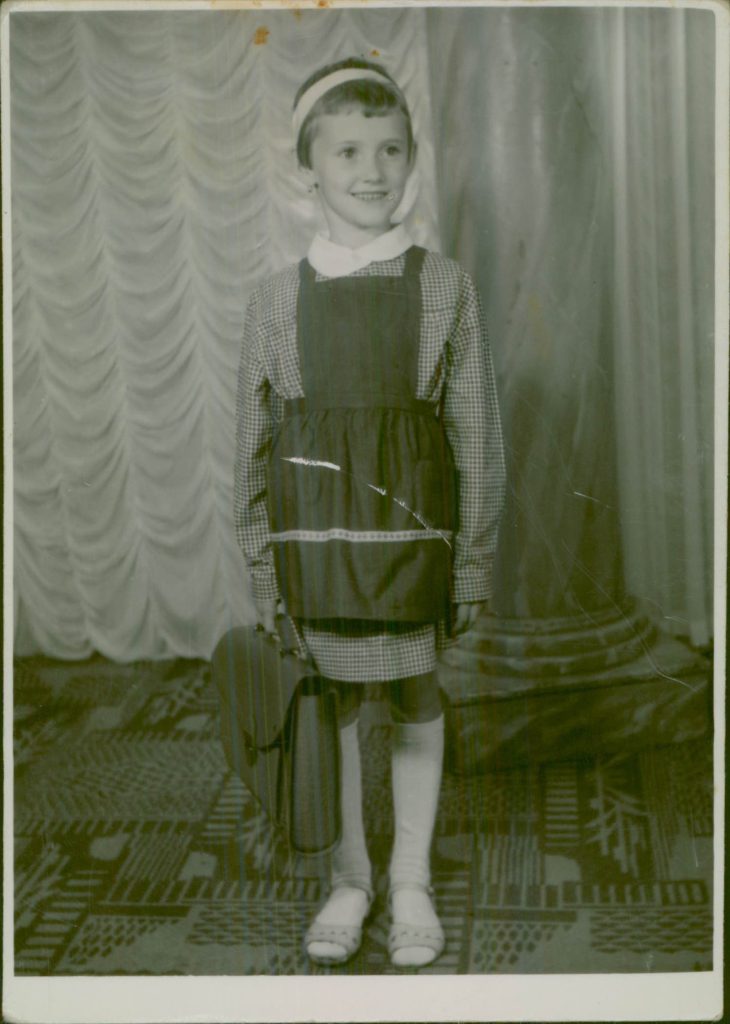A hidden resource. Have you found yours yet?
Just three weeks into the start of my first school, something happened in ‘the system’, and the school was no longer to be a school – so our families received a notice that in three days, we were to go to school somewhere else. It was sad to discover that we were also to be reassigned to two other schools a few streets away.
I remember it all being rather puzzling for our young minds. But, in communism, things like this happened all the time*, and there was little point in objecting – you just had what you were told – at least, that is what I had thought until then.
* A few months later, a local kindergarten stopped being a kindergarten as a party member wanted the house for himself.
Later, in my first year at university, people were given just five days’ notice to move out of their homes before bulldozers moved in to make space for Ceaușescu’s Peoples Palace.
Where I lived, the community was respectful and tight-knit. We were all neighbourhood kids, used to toboggan dangerously down the hills in the nearest park in the winter and playing in the Schiller Square halfway down the street. Yes, that Schiller used to live there. To my shame, I only found out this last summer that he teamed up with Beethoven to compose the ‘Ode of Joy’ – the last movement of the Ninth Symphony. I vividly remember joy amongst the kids playing in our street.
We used to walk everywhere, and few families had cars. However, as my father came from the other side of the mountains* (and fell in love with my mum!), we had a car as he would check in regularly with his only brother at the end of a challenging drive along a scenic gorge.
* Transylvania means ‘across the mountains’ (trans silvic).
But, I digress: let me take you back to the school reallocation.
When the news came that I was to go to another school, my father said plainly. ‘You’d be better off somewhere else. There is a school a few more streets away, let me show you where. And we went – a bit down the hill and outside my usual range. There it was: a curious building with so many windows and an inviting door with a closed church next to it.
Little did I know that this was the Ursuline church and the best school in our historic city – located in a former Ursuline Convent.
I remember the very tall white door to the classroom where my father took me a few days later -and left me after a quick chat with an intrigued teacher. I liked the vaulted corridors and the enormous chestnut tree in the middle of the courtyard, which we could see from every window, but nobody outside this closed world knew it even existed!
There was only one seat in a corner at the back of the classroom. I couldn’t see much, but I used my sitting straight ability to be present, which meant all eyes and ears.

I had yet to learn if my father was fighting the reallocation system or whether he was charming his way in at some impossible high political level. What I knew, though, was that he was checking daily if I was all right sitting at the back of the class. He was, in fact, checking if I felt accepted or otherwise. I did not seem to have a problem, and the initially intrigued looks gradually became irrelevant.
I tactfully and politely made my place, behaving naturally as if I belonged – which, as a matter of fact, I did. For a week or so, it was like a game my father and I had plotted together, and we played it every day.
I remember I had to wake up a little earlier than any of my other neighbours going to school – my parents had already left to work by then – so I was on my own, and it felt exhilarating.
I was doing what the others weren’t, going outside the normal boundaries, showing up in an exciting place, putting my hand up, and being polite and curious.
One day the teacher asked me if I wanted to sit at a desk closer to the front. So, of course, I said, ‘yes, please’.
I was a pupil there – the best school in the city – for 12 years, and after four years at University, I returned to teach there. For seven more years, I helped others grow and do better. I have kept looking for those grains of disruption in other people ever since. I’m proud to say that my students are now scattered all over the world doing just that.
Little did I know that in all I have become, that change event was to be one of my most robust hidden resources. That one instance when I was encouraged to take action against the odds, to disrupt tactfully, patiently, fearlessly and elegantly.
With hindsight, there were six lessons I learned then, for my presence now . . . and in the future:
- (Existential) challenges may come from any direction
At that time, we lived in a culture where good education meant everything;
So, disrupting the status quo was the only possibility to grow the life we knew we (and our parents) wanted.
Stay open-minded, and take the challenge seriously. Signals and happenings can come from most unexpected places. So say ‘yes’.
- The importance of rhythm
Although the news of change was sudden, the fact that I could test the ‘doing,’ i.e. going daily for a few days in a row, moved from swiftly from possibility to reality. If on day 3, one stopped me from going there, I would have said, ‘No, watch me; I am going there’. Day #2 could have been different as it might have been too early…
Only when you take action do you begin to know what feels right.
- Play at the edge
In my ‘book’, if something is intriguing, it has value to be excavated and discovered – so I play and experiment at the edges, then go full in – and disrupt if I can build new value.
You must play to find and build your place.
- Keep your eyes on the future.
Is the sense of danger coming with a promise which feels right? In my case, education was hygiene. It was an intrinsic value in my family’s system. So, having the courage to challenge a decision was motivated by a strong promise of a better future.
Question your values to know if any change makes sense to you.
- Have a guide
I know I was fortunate to have an inspired father. While I felt challenged, I felt safe as I had him as a guide – and accomplice!
A guide is that one person who gives you a sense of safety. He or she might be closer to you than you think.
- Do your bit
What can you add as a value rather than be perceived as being needy?
The truth is that they (i.e. the world out there) need you more for your unique value than you need them – but you must remind yourself of this every now and again.
Feel free to use this story as a catalyst to explore yours; you also have that nugget of steel, potentially one of your hidden resources. Some event or happening changes the outlook of your challenges at one point in time. When you remember them, they may change your posture – and this is a good sign. Your physiology and emotions are tightly connected.
Use any-or-all of the above insights to explore your core; you may not even need to dig that deep to find your story, and, whatever you do find, cherish it. Eventually, you’ll find what works for you – what gives you the safety, challenge, and joy – all in one! This is your image.
Every summer, I walk down the hill with my loving and intrigued husband – and smile at the friendly door. It reminds me of sweet complicity from my childhood – when I learned my first lesson of presence and image on how to disrupt elegantly and tenaciously.
Visit our Image Ability store and learn more about how we can help.
